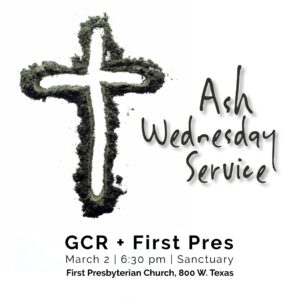When Boaz starts taking an interest in Ruth, the meddling mother-in-law hatches a brilliant plan. She recognizes the reality of their conditions and she moves to seize the opportunity in front of them. Naomi instructs her widowed daughter-in-law to “wash and perfume yourself, and put on your simla” (Ruth 3:3). My NIV translates the Hebrew word simla as “…put on your best clothes.” But the word simla just means a regular robe. Your normal everyday clothes. Simla is just a generic robe by both men and women. It’s not a special dress. It’s not a special anything. And that’s the point.
Remember, Ruth is a recent widow. Her husband died like four or five months ago. And Ruth has probably been wearing special grieving clothes. She’d been wearing something that designated her as a grieving widow and Naomi’s telling her to change into an outfit that would send a different message.
The exact same wording is used in 2 Samuel 12 when David is grieving over the illness of his newborn son. For seven days, David was in a state of mourning, fasting, and praying for his son. When the child died, the Bible says David got up, washed, put on his lotions, and his simla, his normal everyday attire (2 Samuel 12:20). He’s signaling that his grieving is over now. I’m back to business.
That’s what Ruth is doing here. She’s changing into another set of clothes that say she’s available for marriage. She’s not grieving anymore. She’s not focusing on what she’s lost. She’s moving forward. She’s prepared and ready to seize the opportunity in front of her.
As children of God and followers of Jesus, we need to put on the right clothes that signal to the whole world that we are ready and prepared to seize the opportunities around us.
“As God’s chosen people, holy and dearly loved, clothe yourselves with compassion, kindness, humility, gentleness, and patience. Bear with each other and forgive whatever grievances you may have against one another. Forgive as the Lord forgave you. And over all these virtues put on love, which binds them all together in perfect unity.” ~Colossians 3:12-14
The people around you are seeking what’s really important. They’re searching for something trustworthy and true. The people you’re running into every day are disappointed, disillusioned, and divided. But they’re open to something different. They want something or someone that’s real and solid and dependable. They want an answer to everything that’s gone wrong, they’re looking for a solution to everything that’s broken. That way, that truth, that life is our Lord Jesus Christ and the time is right now to make him known to a desperate world.
Clothe yourselves with Christ!
Your life, your words, your actions, your attitude can be living proof to everyone around you that good overcomes evil. You can show people by how you behave that love is greater than hate, that unity is more fun than division, that forgiveness always beats revenge, and that peace is far more effective than violence.
“You are a chosen people, a royal priesthood, a holy nation, a people belonging to God that you may declare the praises of him who called you out of darkness into his wonderful light.” ~1 Peter 2:9
Not just the things you engage in and the ways you act, but also the things you refuse to associate with and the things you say “no” to are a powerful witness to the only One who can truly fix what’s wrong.
“Live such good lives among the pagans that, though they accuse you of doing wrong, they may see your good deeds and glorify God.” ~1 Peter 2:12
Peter didn’t come up with that. He’s quoting our Lord from the opening lines of his Sermon on the Mount.
“Let your light shine before all people that they may see your good deeds and praise your Father in heaven.” ~Matthew 5:16
Think about it. What if you and I remained calm when the other people around us are anxious and frantic and demanding? Everything is turned up so loud right now. What would it mean to others if you were quiet and calm?
What if you and I spoke with humility and grace? Instead of saying things and forwarding things and reposting things that insult and disparage whole groups of other people so the people like me know exactly where I stand, what if we only said thing that were encouraging to others and the only thing that came out of our mouths was intended to build those other people up? I believe that kind of language would really stick out as special.
What if you and I tried to love everybody? What if you and I were known for how kind and graciously we treated others, even when we disagree? Especially when we disagree! I really think that would get noticed. And what if we committed to that right now instead of later?
“[All the commandments] are summed up in this one rule: ‘Love your neighbor as yourself.’ …Do this, understanding the present time. The hour has come for you to wake up from your slumber, because our salvation is nearer now than when we first believed. The night is nearly over; the day is almost here… Clothe yourselves with the Lord Jesus Christ!” ~Romans 13:11-14
Put on the clothes that signal to the world you take very seriously your vows to the Lord. Wear the simla that communicates a deep commitment to the ways and means of our King.
Peace,
Allan







Recent Comments